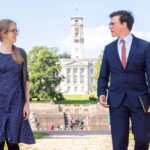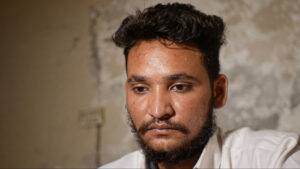As of January 2021, Scotland was the only place in the UK (and indeed most of Europe) where individuals could not go to church to pray alone or worship collectively. Although worshippers in England, Wales, and Northern Ireland were entitled to make the decision to attend a public church service in accordance with relevant health and safety risk assessments, worshippers in Scotland were denied this right.
Legally speaking, in order to limit the right of a person to attend a place of worship, the Scottish government would need to show that the measure was necessary and proportionate. But, in January, the Clinical Director for Scotland, Jason Leitch, said that there was no available evidence to show that the virus was spread due to worship services being held. If the Scottish government had a reason to show that closing churches was still necessary, while keeping open other public services and shops, they didn’t reveal it.
This puts worshippers in a difficult position. Indeed, worshippers have come to many different opinions on the matter. On the one hand, church leaders want to protect the most vulnerable. Many also want to do so while at least offering the chance for their isolated congregants to worship together and receive the sacraments collectively in accordance with their religious obligations and beliefs. It should be for the churches, and not the state to decide whether to close their doors entirely. And it should be for individual worshippers to decide for themselves if they will go church, as they do for other essential matters such as shopping.
The ban in Scotland has raised important questions about church autonomy and state control, the constitution, human rights, and medical risk. The case was necessary to ensure that the government is carefully considering such factors on a balanced and evidential basis.[/vc_column_text][/toggle][toggle color=”Extra-Color-1″ title=”2. What has going to church got to do with human rights?”][vc_column_text el_id=”faq2″]Article 9 of the European Convention on Human Rights (ECHR) says that everyone has the right to ‘freedom of thought, conscience and religion’; this right includes freedom to practise your faith either ‘alone or in community with others and in public or private’ and also includes the right to manifest your faith in worship.
Freedom to worship in public and private is therefore a fundamental human right. The UK signed up to the Convention, and individuals such as Canon Tom are entitled to challenge the government when their right to worship has been limited.
For many, spiritual needs are just as important as physical needs. The ECHR recognises the fundamental role that religion plays in people’s lives and affords strong protections to deeply held religious beliefs and practices such as public worship and participating in the sacraments. In addition, the caselaw of the European Court of Human Rights recognises that freedom of belief is essential to ensuring that citizens can enjoy a democratic society as well as protecting the principle that the state should not be able to dictate what worship involves.[/vc_column_text][/toggle][toggle color=”Accent-Color” title=”3. Is your position that everyone must go back to church, even during a pandemic?”][vc_column_text]No. Many of the Covid-19 measures have been brought in by the government under the understanding that the most vulnerable need to be protected against a medical risk. It is not the position of ADF UK, nor the petitioners in the legal case, that those who do not wish to worship in-person are in any way ‘less Christian’ because of this.
Yet, it should be up to each church and individual to decide whether they want to open and attend church. We believe that the principle of subsidiarity is important, especially with regards to state power and other units of society such as the family or the church.
Just like businesses, churches can, and indeed should, carry out their own risk assessments. For many people, church is an essential part of the community and communal worship is vital. Church leaders across the UK and Europe have opened their churches in accordance with rigorous Covid-secure measures and Scottish church leaders have accepted that such measures can be implemented.
This campaign is not about making a judgement on whether each church should choose to open or not. Instead, it is to challenge whether the government has acted legally and proportionately. Whether churches open their doors, if given the freedom to do so, is a matter for each church to decide. Likewise, whether individual worshippers choose to return to church if the doors are opened, is a personal decision for them.[/vc_column_text][/toggle][toggle color=”Extra-Color-1″ title=”4. Why is it important that Christians should be able to go to church? Surely they can pray and worship in their homes?”][vc_column_text]The Roman Catholic perspective, put forward by Canon Tom’s legal team, articulated the inherent difficulties faced by the community of believers to exercise their religious beliefs when being denied the right to go to church. It was argued that Catholics can only worship fully, in fulfilling their solemn duties under the law of the Church, by having close proximity to a priest in celebration of the sacraments. This arrangement is particularly important for participation in the Eucharist. There is no alternative for Catholics; a video stream of Mass does not confer the graces they would receive if attending in person and does not satisfy their duty to attend the Mass in person. For a Catholic, being denied the right to communal, in-person worship isn’t just a detriment to their faith, it is a suspension of the very essence of what constitutes their faith.
The evangelical Protestant perspective, put forward by 27 inter-denominational church leaders, argued that scripture commands them not to forsake the gathering of the church family, but to encourage one another to regularly meet. The book of Acts in the Bible shows the importance of believers gathering together, even under extreme persecution, and shows the lengths that the early fathers of the faith went to in order to be physically present together. Communion, baptism, collective worship and prayer, public declaration, and corporate study of the Bible is foundational to Protestants; many who feel like this is a lifeline in their walk with God.
Over the past year, the government has increasingly sought to limit and restrict freedoms, with little warning and very little parliamentary debate. Yet, the healthy exercise of the UK constitution relies on the democratic principles of accountability, debate, and transparency.
Several legal challenges have been mounted against Covid-19 restrictions in England, but the judges have not been able to thoroughly grapple with the issues. One core reason why the cases have not been successful is that by the time the case had been presented to judges, the rules had changed. The human rights claims were “old” by the time the case was due to be heard in court.
Yet, this case in Scotland has been able to be argued before Scotland’s highest civil court before the rules were amended. This means that there is a great opportunity for the Court to declare blanket bans as unlawful and give worshippers much needed reassurance that their rights cannot be violated again in the future.
Left unchallenged, the current rules could set a precedent for the government to follow again. It is right for the Scottish government to be conscious of their legal duties to uphold fundamental rights and to know that a blanket removal of freedoms, without robust evidence and an assessment of necessity and proportionality, is likely to be challenged in court.
As Theresa May warned in reference to an English church ban in November, “the government today making [worship illegal], for the best of intentions, sets a precedent that could be misused by a government in the future with the worst of intentions”.[/vc_column_text][/toggle][toggle color=”Extra-Color-1″ title=”6. Why is it so expensive to take a case to court?”][vc_column_text]Sadly, the process of challenging human rights infringements is a very costly exercise that has prevented many from pursuing legal action. Claimants, such as Canon Tom, face considerable financial risks before deciding to initiate legal proceedings.
In this case, the Court recognised that the proceedings could impose an undue financial burden on the Canon, so they waived his court fees. However, this still leaves significant legal costs which are inevitably incurred by a challenge of the government’s decisions at Scotland’s highest court.
The Canon is raising funds here for this purpose and also needs to be prepared for a potential appeal.




